- Do you want to engage in physical fitness more systematically?
- Feel more confident in any situation?
- Perhaps you want to lose weight but don't know how?
The micro-habit of "Doing a plank every day" can indeed be classified as a core habit or keystone habit concept where adopting one habit triggers many other positive changes in life and other good habits. . . . .
Executive summary
1. Increased psychological endurance.
2. Improved physical endurance and strength.
3. Sharpened focus on important tasks and time management.
4. More social interaction, more friends, more laughter.
5. Weight loss!
28th of July, 2020, I decided to do a plank every day. Back then, I had no idea that for the next 460 consecutive days, I would have to do a plank every day. Furthermore, I did it with different people from different cities. How did it all happen?
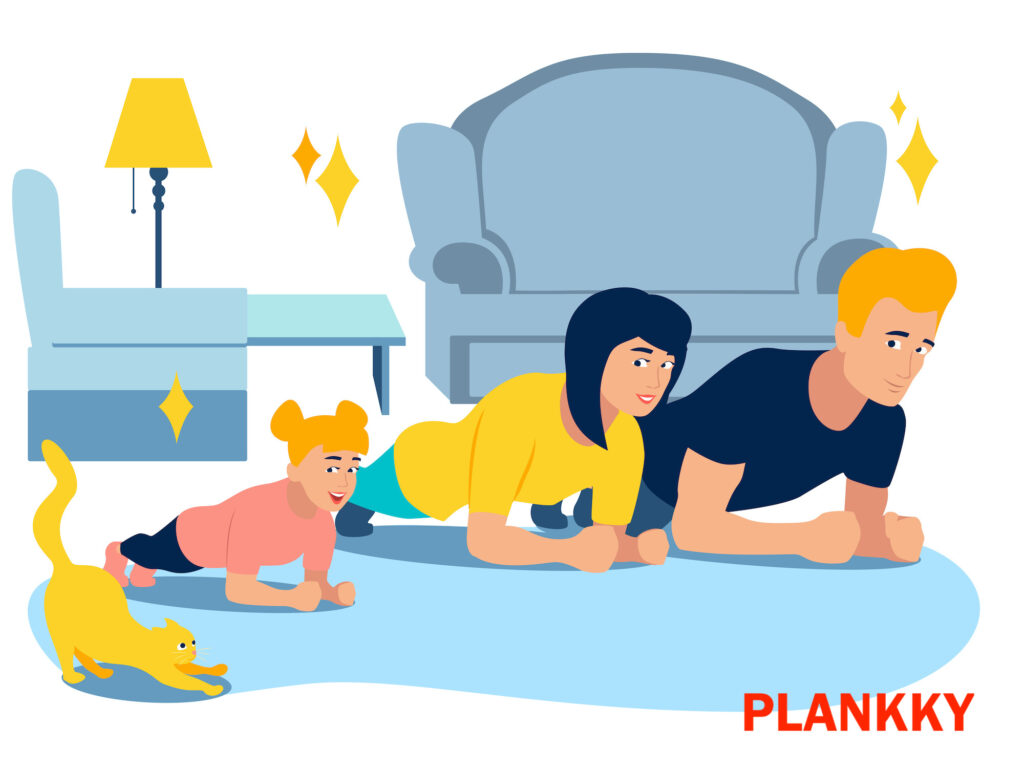
During the quarantine, my 13-year-old teenage son gained a bit of weight. Being at home, enjoying delicious food, and playing Fortnite contributed to it.
Conversations with him on this topic would often come back to me like a boomerang with a good sense of humor and honesty:
- «Have you seen yourself in the mirror, damn?»
About my sports career
I've had a bit of extra weight for about 28 years, but I've never really worried about it. When I cut out beer and bread with butter, the weight goes down. It's a cycle for me, my "male cycle." I've never been on a diet. Never been in prison either. I've been moderately active throughout my life.
I don't like gyms, mainly because of the time it takes. I reason it this way: twenty minutes there, twenty minutes back – that's already forty minutes! In forty minutes, you can create a startup prototype or have a full workout at home. I learned how to exercise at home a long time ago. I find it works well when combined with audiobooks and podcasts. Although, I've never had a structured system for my workouts. That's when I came up with Plankky.
Plankky - monthly plank marathons.
When my son teasingly poked fun at my small belly, I thought something like this:
-«Well, darn it, I'll show you how it's done!»
From that day, my life changed. This is an example of nudging. I decided that I would do a plank every day. And thanks to the plank, I will build myself a 6-pack. Wow! And in this way, I will prove to my son who's in charge! I'll set a positive example! Like, "Look, buddy, this is how it's done." Then he'll understand everything. Then he'll learn too. Monkey see, monkey do. Lead by example.
Children are a good motivator. 🙏
Spoiler: I didn't even get six-pack abs after 460 days, even when I learned to hold a plank for 7 minutes.
But I experienced more wonderful things than six-pack abs. I might achieve the six-pack for fun sooner or later, but it won't last long. Maybe for three months.
And then?
Then I'll probably go back to drinking beer and eating bread with butter. I'm not working in Hollywood, after all.
What is a plank exercise?
A plank is a static isometric physical exercise that targets the abdominal and back muscles. It resembles the starting position of push-ups and requires holding the position for an extended period. The exercise contributes to strengthening the overall muscles of the body.
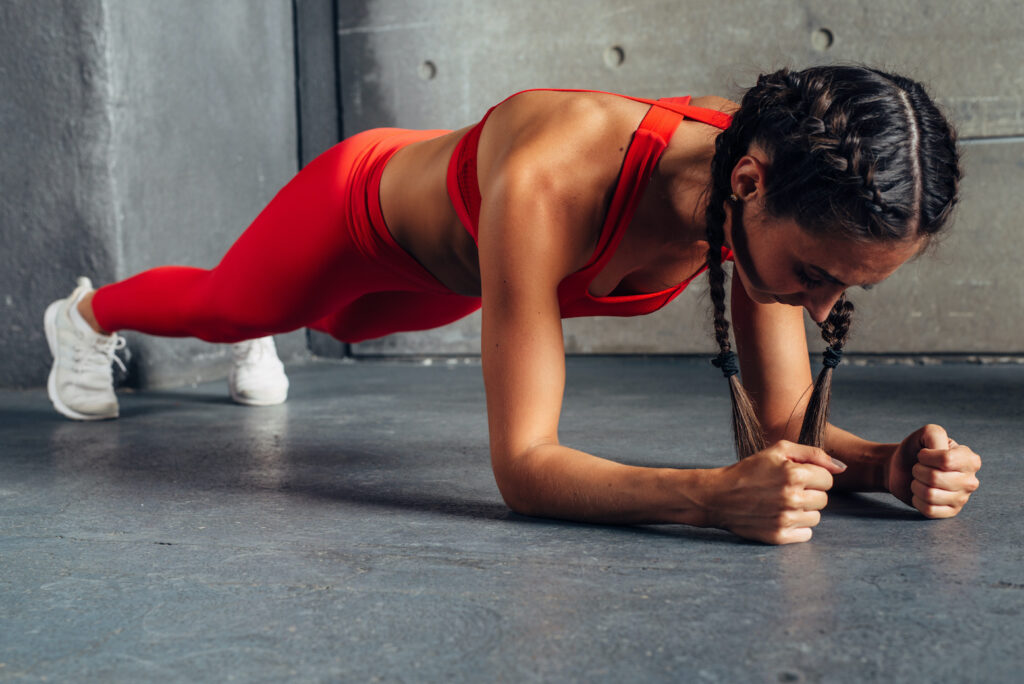
The beauty of planking is in the time.
It's like brushing your teeth. Do you brush your teeth every day?
>> If not, it's a good idea to start! Begin by buying a toothbrush.
>> If yes — Well done! — then you can do the plank every day. It only takes 1-2 minutes, and you're done!
But with planking, it's even simpler: no toothbrush or toothpaste needed.
Places where I did planking:
- At home
- Gym
- Parking lot
- Beach
- Mountains
- At someone's house
- While taking a walk
- Golf course
- During travels
- At the office
How to do a plank correctly?
This video will show you how to do the basic plank correctly. Technique is crucial to avoid injury. Even though planking is simple in terms of time, it should be done correctly. Invest a few minutes in watching the video for your health.
My 460 days in planking.
| Month | This Month in History |
| July 2020 | Decided to start doing planks. |
| August 2020 | Started with a smartphone app. Dreamt of getting rid of my belly shake. |
| September 2020 | Came up with a formula to increase time. Learned to hold a plank for 3 minutes. Learned proper breathing. Started the second marathon with more people. |
| October 2020 | Came up with a formula to increase time. Learned to hold a plank for 3 minutes. Learned proper breathing. Started the second marathon with more people. |
| November 2020 | Achieved 5 minutes with timing to a cool song. Third marathon. |
| December 2020 | Set a record of 7+ minutes for a plank, listening to Dream Theater. Came up with the marathon's name and created a 1-hour website — https://plankky.com/ |
| January 2021 | Did planks even when I had COVID, but only for 1-2 minutes. Fifth marathon. New participants. |
| February 2021 | Started learning Spanish on Duolingo following a similar formula: no missed days, and no more than 20 minutes per day. |
| March 2021 | Decided not to exceed 3 minutes for planks. Seventh marathon. |
| April 2021 | New participants, but Zhanna still does a plank every month. In total, Zhanna participated in all 14 marathons and could write an article about it. |
| May 2021 | The chat is growing. At the beginning of the month, there are approximately 15-20 participants in the marathon, and at the end of the month, 5-10 people remain. |
| June 2021 | Tenth marathon. |
| July 2021 | Eleventh marathon. |
| August 2021 | Twelfth marathon. |
| September 2021 | Thirteenth marathon. It's starting to get boring, so I'm looking for ways to make planking more interesting. |
| October 2021 | The last plank marathon. In November, the 3PR begins, with the same principle, but you can replace planks with pull-ups, push-ups, or running. Plank, Push-ups, Pull-ups, Running. |
| November 2021 | The first 3PR marathon. |
5 benefits that I understood after 460 days of uninterrupted planking and organizing 14 plank marathons.
1. Increased psychological resilience.
Why do people climb Everest and other mountains?
Two points:
- Every day, I determine how long I want to hold the plank on that particular day. I measure the time either by the clock, counting in my head, or by using a song. For example: 1 minute, 1 minute and thirty seconds, 2 minutes and 37 seconds to the tune of "Pirates of Tomorrow," 4 minutes and 6 seconds with Sia's "Unstoppable," or a hardcore 7 minutes and 16 seconds with Dream Theater's "Panic Attack." There are many songs to choose from, so pick one that suits your taste.
- Multiply all of this by 460. Many, many days of these exercises. I believe the effect is not linear here, but for simplicity's sake, you can just multiply. It's not an exam, after all.
Holding the plank is not easy on its own. It's even more challenging when you need to hold it for a specific amount of time and not give up. When there's a mental negotiation going on, and you keep holding without giving up. Not missing a single day requires a system.
Thus, thanks to the simplest micro-habit - doing the plank every day - complex goal-setting and achievement skills are developed, despite various obstacles. This increases psychological resilience and is generally a positive addition to one's life.
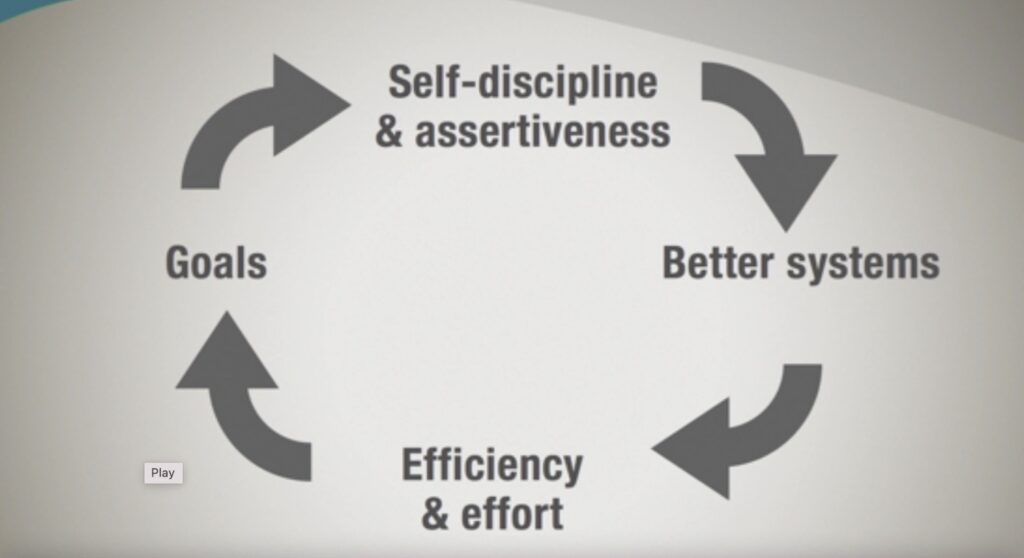
2. Increase in physical endurance and strength.
Muscles grow for sure. There's no other way around it. Systematic muscle loading strengthens and promotes muscle growth.
— Strengthens the core
— Increases muscle mass
— Boosts metabolism
— Reduces back pain
— Improves posture
— Enhances balance
— Promotes bone and joint health
— Elevates mood and reduces stress
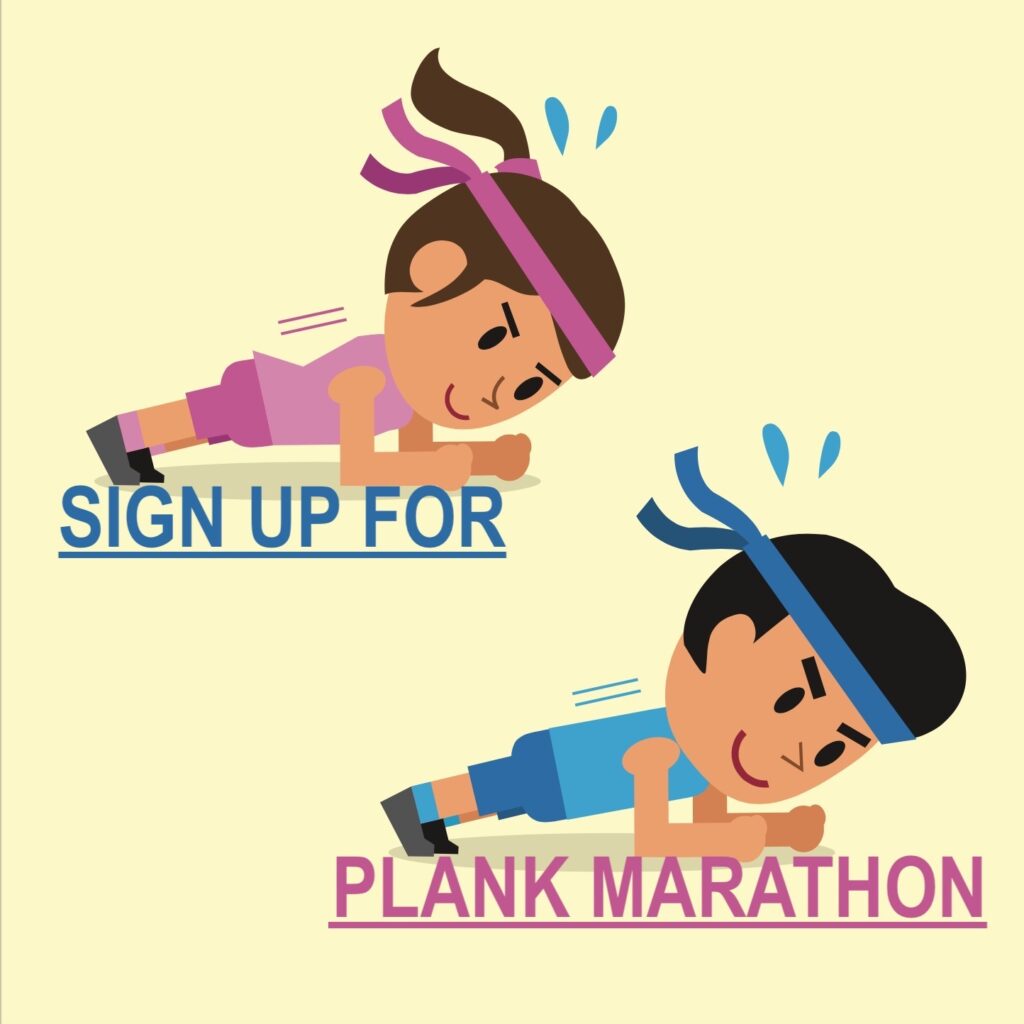
3. Focus on the essentials improves, time reallocation occurs.
Time management and focus management.
Your life is made up of time, and you need to extract the maximum benefit from it.
Time is like rubber.
Time can be compressed and stretched.
Often, work or a task takes as much time as you allocate to it. It's a psychological phenomenon.
Procrastination is a psychological tendency to constantly postpone even important and urgent tasks, leading to life problems and painful psychological effects.
The amount of USEFUL TIME in our lives varies.
The goal of time management is to maximize the time spent on important tasks.
Important does not necessarily mean urgent. Important ≠ Urgent.
Examples:
- Going to the store for groceries is never really important, but it can be urgent. It's better to delegate it. Most often, it's just "mindless routine." TIP: Use delivery services.
- Doing morning exercises is never urgent, but it's actually important because health is very important, isn't it? TIP: Do your morning exercises.
Here are 5 ways to control your time:
1. Say "No" to tasks, people, and even things you want to do. Sorry.
2. Negotiate with people and yourself. Watch a movie or read a book?
3. Delegate tasks. Please, don't delegate the plank.
4. Improve systems in your life. Increase efficiency. Yes!
5. Combat perfectionism. Done is better than perfect.
Now, imagine this daily dilemma:
To do a 1-minute plank or not? No time? But where does the time go?
That's where the magic happens:
- You start to better understand your decisions.
- You improve your choices.
- A 1-minute plank sometimes leads to a full exercise! Remember the 1-minute principle from Japanese Kaizen? Our psyche is so complex that we can outsmart our own subconscious with simple tricks, like saying, "I'll just do a 1-minute plank and then go have coffee and a cigarette.
Where did that one minute DISAPPEAR to? 😢
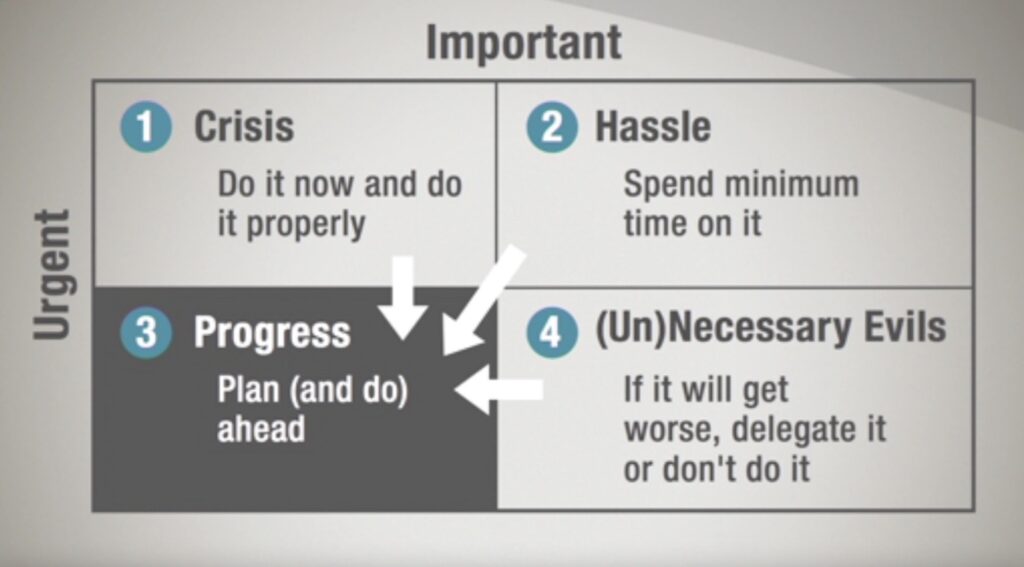
Daily planking helps you spend more time in Box 3 and less time in Boxes 2 and 4.
4. More communication, more new friends, more laughter.
Quick poll:
- Did God create humans?
- Did humans create God?
- Is it boring alone, more fun together!?
For some people, to motivate themselves to "get off the couch," hiring a personal trainer helps. It's better than spending money on sweets. But isn't it better to build motivation from within?
What about such a cycle: learned – understood – wanted – decided – did?
Friends come to the aid of friends. People unite based on common interests. The company you keep determines the kind of person you become.
If you had a choice, which group chat would you like to be in?
- Anonymous Alcoholics.
- Boring colleagues with political correctness and subordination.
- Close friends who share your values and sense of humor, and who crack jokes every day. Moreover, the chat has a unifying existential goal: to engage in physical fitness and be a good boy/girl.
People motivate people. This works very well in sports! And a gym is not necessary for that.

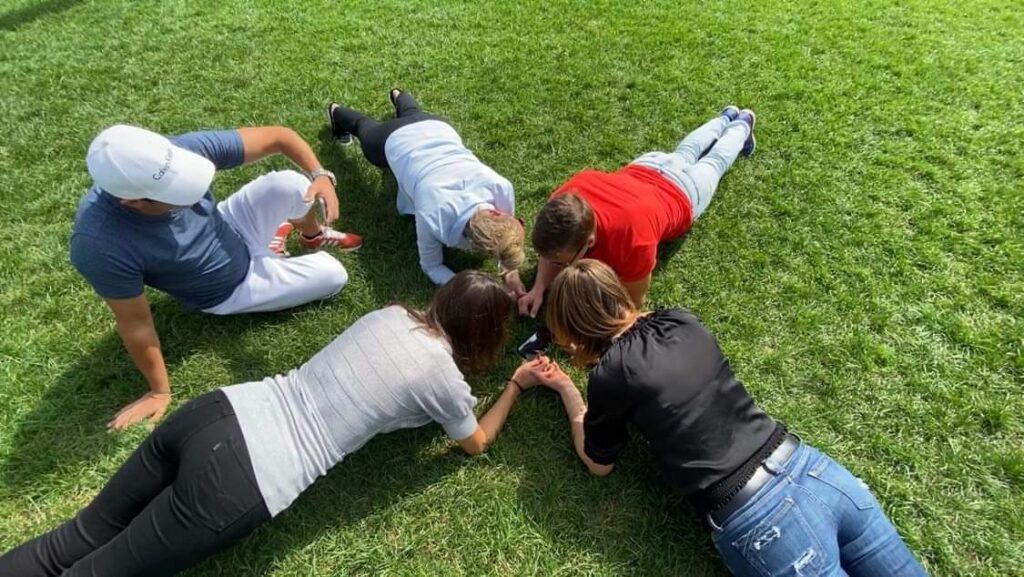
What to do?
- Create your chat about any physical fitness and sports. It can even be about planking!
- Add people to it whom you enjoy talking to
- OR ask a friend to create such a chat
- OR join an existing chat, engage in conversations, and participate in physical fitness activities. Share Save
5. Weight loss!
Moreover, you're also losing weight! Fantastic!
New habits are LIFO (last in, first out). The last one to come in will be the first to go out. ..
New habits can be challenging.
Research shows that almost everyone who loses weight through a diet gains it back within 2 years.
Habits you've recently acquired will disappear more quickly than long-standing habits.
The more frequently we do something, the stronger our habit becomes.
To maintain a healthy weight in the long term, it's important to maintain a healthy mindset and make choices that are beneficial for you.
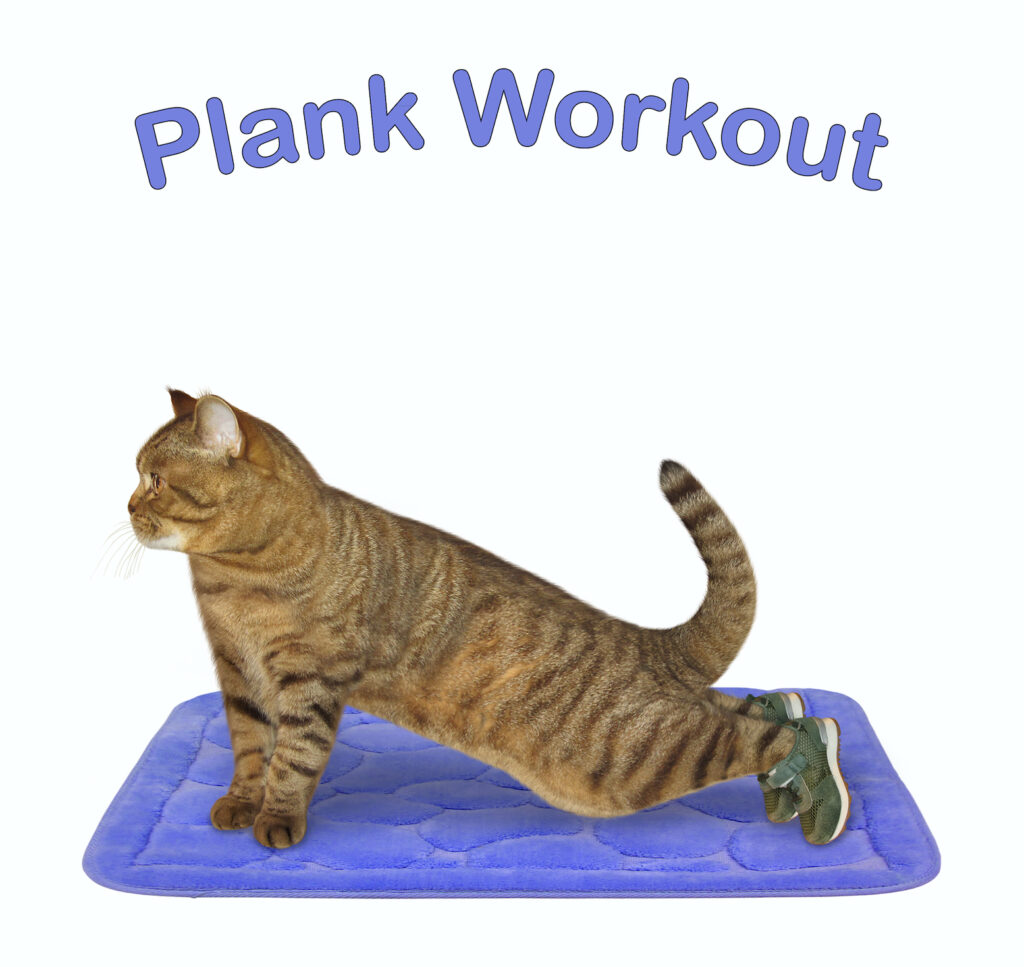
Good luck in your endeavors, more smiles, and 6-packs to you!
My son slimmed down on his own. He started growing taller; he's a teenager after all. He didn't start doing planks. But!
Now he has a unique opportunity to read this note and draw conclusions.

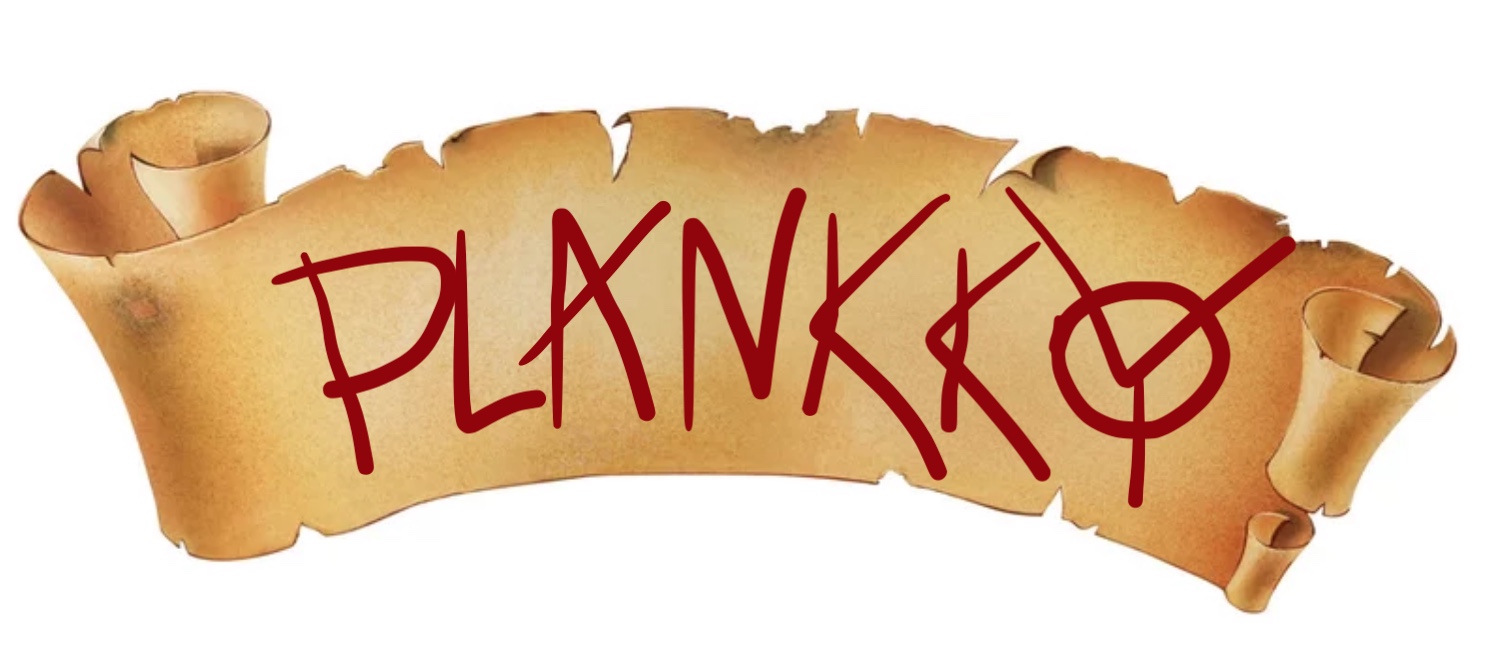
Leave a Reply